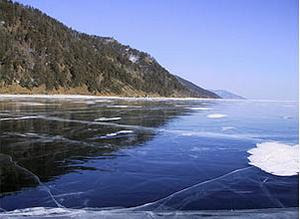Saving Lake Baikal

Saving Lake Baikal
By Dr Arvind kumar
Lake Baikal, located in the south of the Russian region of Siberia near the city of Irkutsk, is the largest freshwater lake in the world, with an average depth of over 5000 feet down and is said to be 25 million years old. It is not only the deepest lake but oldest. Containing roughly 20% of the world's surface fresh water that is unfrozen, Lake Baikal has provided scientists with insight into the ways that climate change affects water temperature, which in turn affects life in the lake. According to a research study recently published in the journal PLoS ONE, the research team of scientists has discovered many climate variability signals, called teleconnections, in the data. For example, changes in Lake Baikal water temperature correlate with monthly variability in El Niño indices, reflecting sea surface temperatures over the Pacific Ocean tens of thousands of kilometers away. At the same time, Lake Baikal's temperatures are influenced by strong interactions with Pacific Ocean pressure fields described by the Pacific Decadal Oscillation.
However, reports about Lake Baikal warming faster than global air temperatures over the past 60 years are alarming and can put animals unique to the world's largest lake in jeopardy. According to one report, the lake has warmed 1.21 degrees Celsius since 1946 due to climate change, almost three times faster than global air temperatures. The lake is home to 2,500 species, most of them found nowhere else, such as the world's only exclusively freshwater seal. Urgent steps are called for protecting Lake Baikal from the adverse impact of climate change.



Comments
Post a Comment